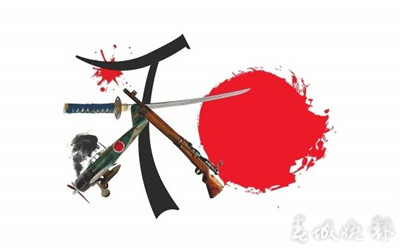日本政壇
To the district born
出身很重要
Political families are on the rise
政治家族增多
THERE is a saying in Japan that a monkey that falls from a tree is still a monkey, but a member of parliament who falls is a nobody. Apart from some opportunities in a tiny lobbying industry, there are few prospects for cast-aside politicians. So an approaching snap election on December 14th is sparking anxiety in the Liberal Democratic Party (LDP)—except, that is, among a swelling class of politicians who owe their positions in no small part to family connections.
日本有句老話說(shuō),猴子掉下樹(shù)后還是猴子,議員掉下來(lái)了,就什么都不是了。除了競(jìng)選游說(shuō)中的少數(shù)工作機(jī)會(huì),一個(gè)黯然退場(chǎng)的政客幾乎沒(méi)有出路。所以將在12月14日到來(lái)的換屆選舉在自由民主黨內(nèi)引發(fā)了一陣焦慮。不過(guò),這其中并不包括那些依靠家族關(guān)系而平步青云的政客們,他們的陣容也在日益增大。

Botchan, or well-born “brats”, are prevalent in Japanese politics. More than two-fifths of LDP legislators are occupying safe seats in the Diet, Japan's parliament, that were once held by fathers, grandfathers, uncles or in-laws. The total number in both houses of the Diet across all parties is climbing again, after a recent sharp fall in the lower house. They have to compete for their relatives' seats, but they are normally a shoo-in. Eight out of 19 members of the cabinet have relatives who were in the Diet or in local politics.
太子黨,或者叫做好命的“小鬼們”,在日本政界中非常盛行。日本國(guó)會(huì)中,超過(guò)2/5的自民黨現(xiàn)任議員都有父親、祖父、叔伯或者姻親曾任議員。雖然下議院的家族議員人數(shù)在不久前大幅下降,但國(guó)會(huì)兩院中各黨派的家族議員總數(shù)又開(kāi)始持續(xù)攀升。這些人同時(shí)也要為其親屬爭(zhēng)取席位,不過(guò)正常來(lái)說(shuō)都是十拿九穩(wěn)。現(xiàn)任19名內(nèi)閣成員中有8人都有親屬任職于國(guó)會(huì)或者地方政界。
There are numerous advantages in taking up a family member's position: a ready-formed electoral machine of koenkai, or local supporters, and immediate name-recognition which makes it easier to win elections. If a hereditary politician is unfortunate enough to lose office, the family's clout in the constituency can secure a job in a local business to tide them over.
繼承家族成員的席位有數(shù)不清的好處:他們有已經(jīng)成形的選舉機(jī)器後援會(huì),也就是地方支持者,而且他們的名字容易被選民認(rèn)出,這也能提高勝算。哪怕一個(gè)政二代不幸失去職務(wù),家族的影響力也能保證為其在地方的商界中找到工作,從而渡過(guò)失業(yè)的難關(guān)。
The threat of ejection every few years holds little appeal for outsiders. It is one reason why the opposition Democratic Party of Japan (DPJ), with fewer dynasties, is struggling to find enough candidates to stand in the coming election. Many Japanese had hoped that the DPJ, when it was in power in 2009-12, would ban politicians from taking over from relatives in local party branches. But it did nothing (and its first prime minister, Yukio Hatoyama, was a particularly hapless hereditary type). Now the public appears to regard the habit as a lost cause.
隔幾年就有離職威脅使得政界對(duì)外界人士來(lái)說(shuō)吸引力有限。這也是為什么執(zhí)政時(shí)間更短的反對(duì)黨日本民主黨甚至難以為即將到來(lái)的選舉找到足夠候選人。很多日本人曾希望民主黨在2009-12年執(zhí)政期間,能夠禁止政客接班任職與地方黨派分部的親屬。然而民主黨并未這么做(該黨首位總理鳩山由紀(jì)夫就不幸是個(gè)政二代)。如今,民眾都已經(jīng)對(duì)這種現(xiàn)象見(jiàn)怪不怪。
There are still some critics, however, including among the many LDP legislators who had to claw their way up. Yuko Obuchi, a politician who took over her seat aged 26 from her father, Keizo Obuchi, a former prime minister, resigned from the cabinet in October after a storm of criticism over infractions of political-funding rules by members of her office. But the “princess”, as she is often known, is still likely to win a sixth term next month.
然而,批評(píng)的聲音仍然不少,其中還包括一些通過(guò)自己奮斗上位的自民黨議員。10月份時(shí),26歲芳齡就接班父親、前首相小淵惠三成為議員的小淵優(yōu)子從內(nèi)閣辭職。其原因即是對(duì)她辦公室成員違規(guī)使用政治資金持續(xù)不斷的批評(píng)聲。不過(guò)這位被稱(chēng)作“公主”的政客極有可能在下月的選舉中贏得第六個(gè)任期。
Are the botchan bad for Japan? Shinzo Abe, Japan's prime minister, has inherited the eagerness of his grandfather, Nobusuke Kishi, who was prime minister soon after the second world war, to revise the country's American-written constitution that renounces the use of war. Many regard Mr Abe's focus on this as a political weakness. Apart from being trapped by family preoccupations, hereditary politicians have difficulty challenging the interest groups that chose them.
太子黨對(duì)于日本是利是弊?日本首相安倍晉三就是繼承了他的外祖父、二戰(zhàn)后不久上任的日本首相岸信介的意志,力圖修訂美國(guó)為日本撰寫(xiě)的放棄發(fā)動(dòng)戰(zhàn)爭(zhēng)的憲法。很多人把安倍對(duì)此的執(zhí)著看做是他的政治弱點(diǎn)。除了被家族成見(jiàn)所掣肘之外,政二代還難以挑戰(zhàn)選擇他們的政治團(tuán)體的權(quán)威。
Yuji Tsushima, a retired LDP politician whose son, Juji Tsushima, is the fifth generation of MP in his family, attributes his family's influence to a decision after 1946 by his wife's uncle, the governor of Aomori prefecture, to hand over land to grateful farm labourers. But he sees flaws in the system. Having too many hereditary politicians, he admits, “is not good”.
津島雄二是一位已經(jīng)退休的自民黨政客,他的兒子津島淳是家族中的第五代國(guó)會(huì)議員。他認(rèn)為自己家族的影響力要?dú)w功于他妻子的舅舅的一個(gè)決定。1946年后,時(shí)任青森縣知事的這個(gè)舅舅做出決定將土地分給了農(nóng)場(chǎng)的勞動(dòng)者,這些人非常感激,一直支持津島家。但是他認(rèn)為這種體制中有一些問(wèn)題。他承認(rèn)說(shuō),有太多的政二代“不是好事”。翻譯:胡靚 校對(duì):戴京涌












